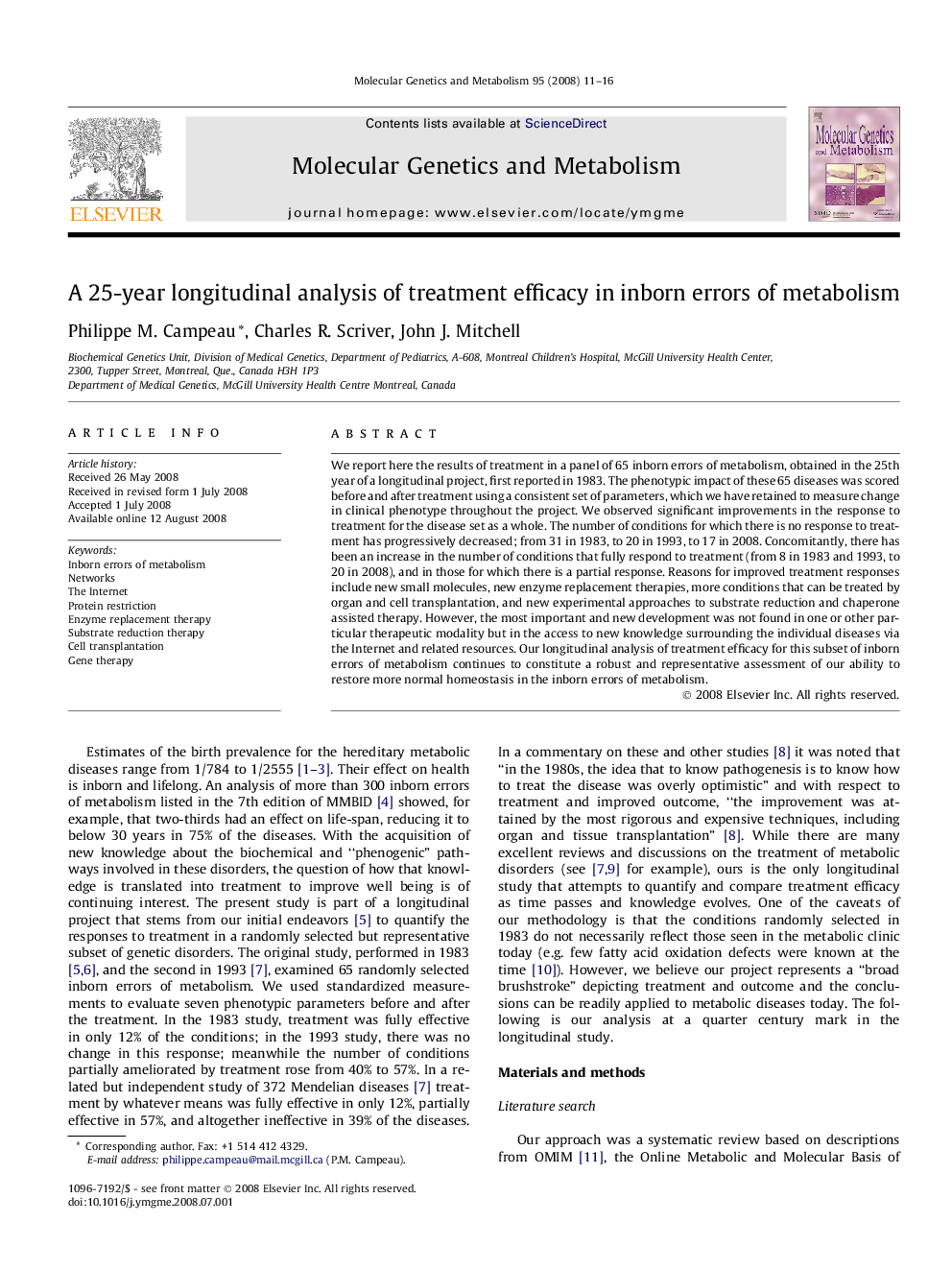| Article ID | Journal | Published Year | Pages | File Type |
|---|---|---|---|---|
| 1999105 | Molecular Genetics and Metabolism | 2008 | 6 Pages |
We report here the results of treatment in a panel of 65 inborn errors of metabolism, obtained in the 25th year of a longitudinal project, first reported in 1983. The phenotypic impact of these 65 diseases was scored before and after treatment using a consistent set of parameters, which we have retained to measure change in clinical phenotype throughout the project. We observed significant improvements in the response to treatment for the disease set as a whole. The number of conditions for which there is no response to treatment has progressively decreased; from 31 in 1983, to 20 in 1993, to 17 in 2008. Concomitantly, there has been an increase in the number of conditions that fully respond to treatment (from 8 in 1983 and 1993, to 20 in 2008), and in those for which there is a partial response. Reasons for improved treatment responses include new small molecules, new enzyme replacement therapies, more conditions that can be treated by organ and cell transplantation, and new experimental approaches to substrate reduction and chaperone assisted therapy. However, the most important and new development was not found in one or other particular therapeutic modality but in the access to new knowledge surrounding the individual diseases via the Internet and related resources. Our longitudinal analysis of treatment efficacy for this subset of inborn errors of metabolism continues to constitute a robust and representative assessment of our ability to restore more normal homeostasis in the inborn errors of metabolism.
